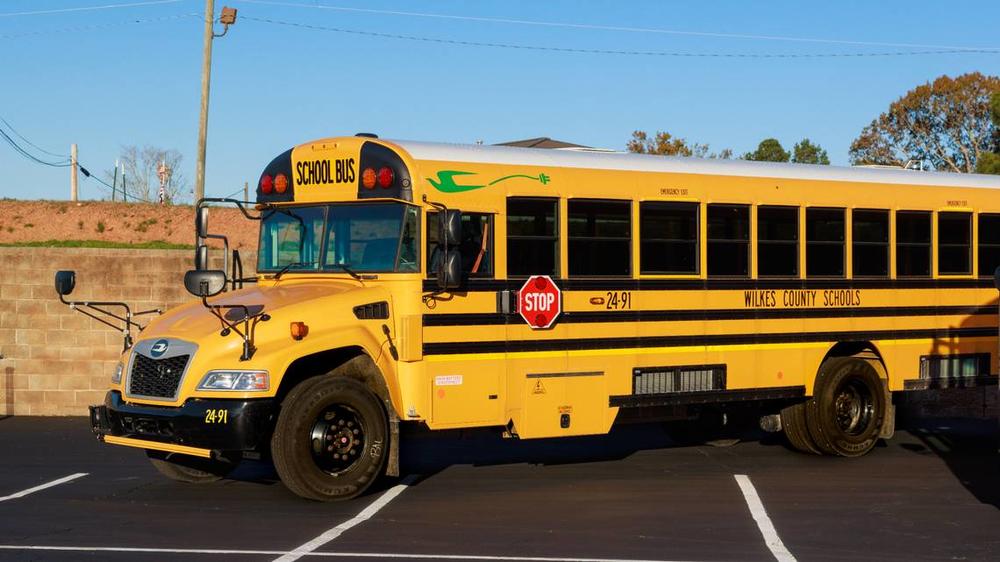
Caption
This is one of Wilkes County School District’s 22 propane buses, which still sports a familiar and traditional school bus look.
Credit: Wilkes County School District

This is one of Wilkes County School District’s 22 propane buses, which still sports a familiar and traditional school bus look.
This story was originally published Dec. 6, 2024.
The Wilkes County School District announced last week that it’s the first in Georgia to have all of its daily bus routes served by electric and propane buses instead of diesel buses.
In a news release from communications consultants Sugarcane Strategies, the organization said Wilkes County was one of the few nationwide to transition to fully clean fixed-route buses, according to the release.
The effort to make this fleet more environmentally friendly started in 2017 when the transportation director, Ron Stephens, was hired. He realized 70% of the bus fleet had exceeded its lifespan of 14 years, so he went to the county’s Department of Education and eventually a seven year plan was created to update the fleet.
With money from the Board of Education, the first 10 propane buses were purchased in late 2019 and arrived six to eight months later, according to Stephens.
“I’m very grateful for their support,” Stephens said. “We couldn’t have done any of this without them.”
The Environmental Protection Agency’s Clean School Bus Program was then announced in 2020, allowing school districts to get either a a $30,000 credit for a propane bus or a free electric bus and charging station in exchange for destroying a diesel bus, according to Stephens.
“Now that we knew propane was a viable option for us, we kind of intended to go with propane anyway,” Stephens said. “It was a win-win ... I mean who wouldn’t want to give us a cleaner environment if we can, on top of having (propane) engines that are terrific.”
In hopes of being accepted into the EPA’s program, the school district didn’t want to solely request propane buses, so officials requested five electric buses on top of another 12 propane buses. They were soon accepted.
Now, the school district has 22 propane buses and five electric, giving them spares with two more clean buses than they have routes.
“We get to save the environment at the same time we’re getting a new bus,” Stephens said. “That’s perfect.”
The total amount Wilkes County School District received from the EPA for the buses was over $2.3 million.
Because the EPA program didn’t cover the entirety of the price of a propane bus, which commonly costs around $135,000, the county’s Board of Education covered the rest, according to Stephens.
The only limitations of electric and propane buses is the distance they’re able to travel. Electric buses can typically run around 130 miles without needing a charge, and propane buses can go around 200 miles without needing more fuel. The problem is there isn’t always a charging station or propane readily available while on the road, Stephens said.
However, the advantages of these green buses outweigh the limitations.
“The propane engines are easier to work on, and they’re less expensive to work on, and it’s just way cleaner, obviously,” Stephens said.
Plus, these buses have air conditioning, which the old buses did not, according to Stephens.
Wilkes County School District partnered with Yancey Bros., Blue Bird and Highland Electric Fleets to obtain the clean buses and install five new charging stations to support the district’s five electric school buses, according to the news release.
It’s important to note that the school district still has diesel buses for long distance drives for field trips and sporting events across the state, according to Stephens.
This story was originally published Dec. 6, 2024. It comes to GPB through a reporting partnership with The Telegraph.